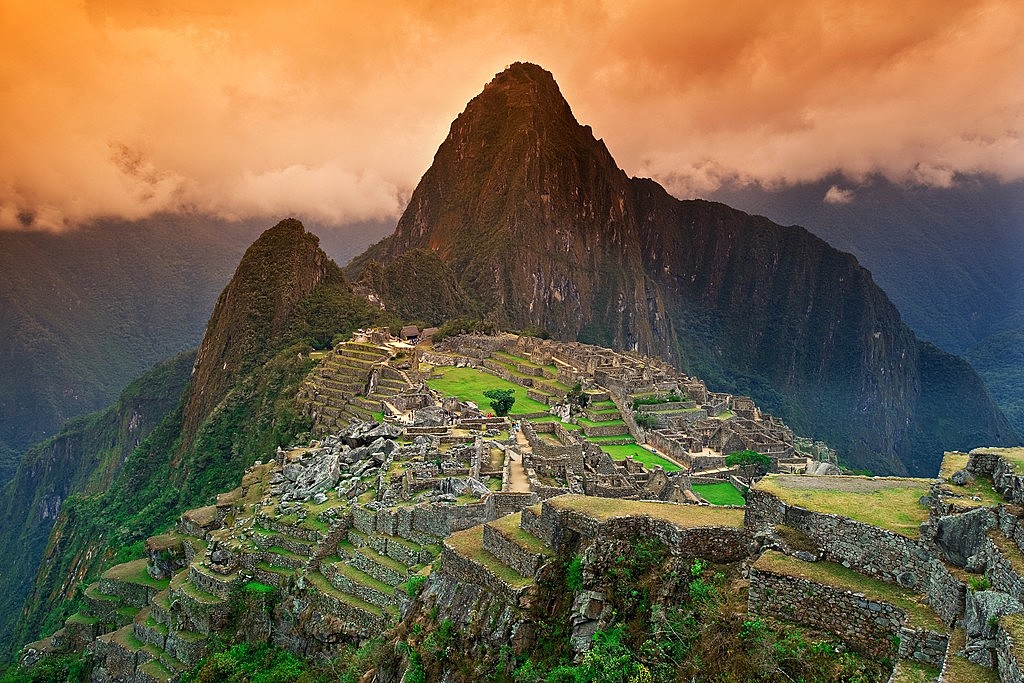Any trip is enhanced by a bit of advance preparation. Apart from planning the itinerary and booking train tickets and accommodations, you’ll want to take the time to educate yourself about the cultural background of the place you're visiting. From serious documentaries delving into the history of Machu Picchu to award-winning films revealing the day-to-day struggles of Peruvian people, these films will get you excited about your upcoming trip.
Ciudad de M (2000)

For a taste of Peruvian life that has nothing to do with Incan ruins or tourist attractions, check out Ciudad de M (City of M), by director Luis Felipe Degregori. The story follows the protagonist, a young man who simply goes by "M," as he struggles to find a job in Lima. The lack of professional opportunities, and the social pressure he feels to succeed, reveal plenty about contemporary life in the Peruvian capital, especially as M considers breaking the law in order to make ends meet.
The narrative touches on the idea that many Peruvians, frustrated by their options at home, consider leaving the country and seeking employment elsewhere. The conflict between those who stay and those who go—and the notion that staying in Peru and working for positive change is the only way forward—is still relevant today.
The screenplay, which is an adaptation of a book by Óscar Malca, won a prize from the National Cinematography Council when it was released. Adding extra appeal to the film is a lively soundtrack by local bands and performers: watching the film is a great way to discover new music by Peruvian talents.
If you have a day to spend in Lima, try this itinerary for a perfect day in the city.
La Boca del Lobo (1988)

A co-production between Spain and Peru, La Boca del Lobo (The Mouth of the Wolf; 1988) is a hard-hitting film dealing with topics like Peruvian law enforcement and guerrilla warfare. It's considered the definitive work of well-respected director Francisco Lombardi.
The narrative is based on a true story. The setting is Chuspi, a village in the Andes, and the central character is a soldier named Vitin Luna. The village is located in an "emergency zone" during a moment of internal conflict between the government and independent militias. A lieutenant named Iván Roca arrives in Chuspi, accuses everyone in the village of being dangerous terrorists, and orders retaliatory action. Luna is faced with a moral dilemma: should he serve his military duty or side with the civilians in the village. The film, beautifully shot and emotionally challenging, is a Peruvian classic.
Planning a trip to the Central Andes? Check out this list of recommended highlights along the way.
Chat with a local specialist who can help organize your trip.
The Motorcycle Diaries (2004)

Even if you've already seen this 2004 biopic, you'll probably want to watch it again before your trip to Peru. Diarios de Motocicleta (The Motorcycle Diaries) is based on a real-life story of two young men — Ernesto "Che" Guevara (a medical student) and Alberto Granado — traveling across Latin America on motorcycles. The trip starts in their native Argentina: Peru is just one of the destinations along their journey. But the segment of the film when the pair finally arrives at the ruins of Machu Picchu is truly stunning.
Also of interest for travelers in Peru: Guevara and Granado spend several weeks at a leper colony in San Pablo, near Iquitos. There, the medical staff and the lepers live on opposite sides of a river, a separation that's both physical and symbolic, prompting the young Guevara to question the social divide. He would go on, of course, to become a revolutionary: his experiences in Peru are part of what defined his philosophy.
Asu Mare (2013)

Asu Mare (2013) is a lighthearted adaptation of Carlos Alcántara's standup routine—and at one time, the highest grossing film in Peruvian cinema history. The comedian stars in the film version, too, along with a range of Peruvian actors and comedians. While you might miss some of the cultural references, all viewers can relate to Alcántara's story: he grew up poor, and without a father. He fails in his early attempts to become a musician and an actor, but along the way, he discovers his gift for humor. It's a gift that allows him to earn fame, wealth, and romantic fulfillment, much of which he credits to his mother for her ongoing support.
The Ghosts of Machu Picchu (2010)

Why did the Incas abandon their city in the clouds? It's the central question of The Ghosts of Machu Picchu (2010), an excellent documentary film produced by PBS. Taking the time to watch this film before your visit to the famous destination will enhance your experience exponentially: the documentary goes deep into the big questions and mysteries surrounding the site's history. Why did the Incas choose such a remote location to build the city? How did they construct such an advanced aqueduct system? What else exists around the site that so many tourists visit on a daily basis? Featuring a team of archeologists as they unearth burial sites and previously unseen artifacts, The Ghosts of Machu Picchu is a must for travelers who want more than a cursory introduction to the place.
Read this article for a recommended three-day itinerary taking in Huchuy Qosqo & Machu Picchu.
